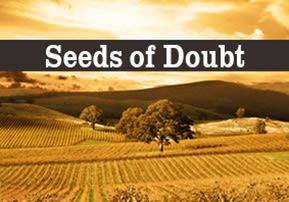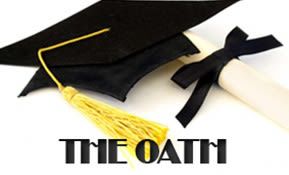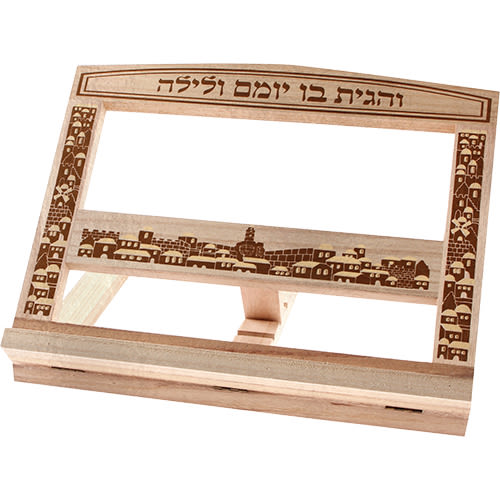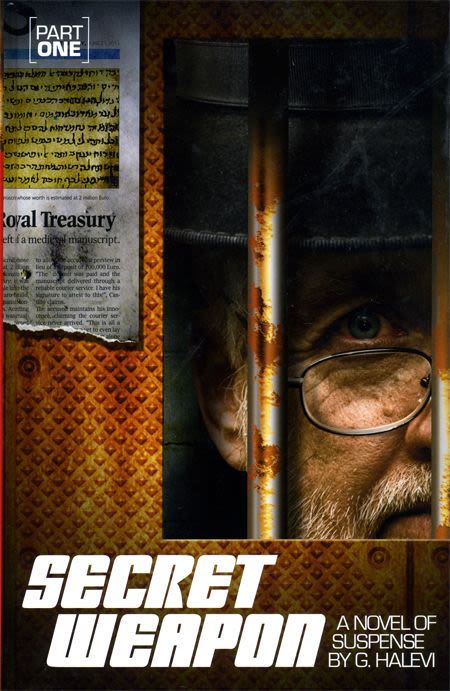
Seeds of Doubt
In Australia, the minister became a renegade, less obligated by the official dogmas of the Church and more attracted to revealing the secrets he was uncovering in the Tanach…

Strangers No More, Part 7
Life is full of departures and arrivals, farewells and welcomes. We were only recovering from our sad departure from Finland when a new, happy welcome awaited us in Brisbane. A reunion with Runa’s sister Gunlis, her husband Gunnar and their family was followed by a welcome party at Bunya Street Finnish Chapel, organized by our new parish. The chairman of the congregation was a sugarcane farmer called Paavo, or Bob, as he was called in English. Ever since he left his homeland thirty years earlier, in his youth, he spoke the old Finnish language. His speech sounded strange and rough, yet direct.
“This is a tough place, a small congregation with limited resources, but we appreciate that you have come and we will do our best to ensure that you and your family will be happy here,” Paavo said.
This attitude was quite typical of the people and the congregation, which consisted of laborers, farmers, and miners; only a few below the age of fifty. The congregation donated generously and expected a reasonable return. I, in turn, was determined to do the best job I could, not knowing exactly what they had in mind other than pastoral services.
We began our new life in Brisbane with some bumps along the way; it was challenging to have to adjust to such an unfamiliar and foreign environment. For our family, Australia was a whole new world. The older girls started school immediately. Linda, as the oldest, took on the responsibility of setting the pace for the others. With her head held high, she went to school from the first day without knowing one word of English. Sara, who was only five, went with her and started first grade. Three days in a row, Sara went to school with tears running down her cheeks. She was obviously unhappy. I couldn’t blame her. She was unable to express herself and did not understand a word that was being spoken to her. After three days, she suddenly stopped crying and explained that God helped her when she prayed. In hindsight, starting school this way must have been quite traumatic, but fortunately our daughters managed and did well. Karolin and Josefin had a softer landing in this new environment. They still had time for lots of innocent mischief before they needed to think about the serious business of school. It did not take long before our daughters communicated in their new language, and until today they speak English to each other and to us, even though we answer in Swedish.
On the same street as the Lutheran church was a Catholic Chapel and a synagogue. If I happened to mention in conversation that I was Lutheran, I was usually asked: “What is that?” Most Australians are either Catholic or Anglican. My job was similar to my previous one in Finland, but the challenge, I soon understood, was to arrange events that provided some financial relief to the members of my congregation. The emphasis on fundraising was new to me. In Finland all Lutheran congregations are supported by the state with tax revenues, but this was certainly not Finland. The fundraising methods were as diverse and varied as creativity would allow. In addition to charging a membership fee, we organized everything from lotteries and bazaars to picnics and food festivals. Lotteries were a contentious issue. The Australian Lutheran Church were unfamiliar with this method of fundraising, and certainly did not approve – what are these Finns thinking of! Once we had a big catch for the prize in a lottery. The famous golfer Greg Norman had a Finnish grandmother who regularly attended our Church services and lived only a block away. She asked her grandson, the “Great White Shark,” as he is famously known, for a golf glove to be used as first prize in our fundraising lottery. Needless to say, our parish fund enjoyed a nice boost.
I did not mind working as a fundraiser, but I certainly felt that a minister had other priorities to think about. So we began organizing services in Swedish. There is a large Scandinavian community in Brisbane that did not have any regular Church services in Swedish. With Swedish as my mother tongue, I was more than happy to initiate this cooperative service. For my Finnish parish it meant assistance with the Church fund, so Paavo and the rest of the Church council were quick to approve the idea. This co-existence proved to be mutually beneficial and harmonious, and to this day, the Finnish minister still provides services in Swedish.
Years went by and the work continued and developed. I had a good working relationship with my colleagues in the Australian Lutheran Church, although I mostly worked alone, except for the company of my wife, of course, who was the organist in the church. That was the nature of the job. The closest Finnish minister partner was approximately 800 km away in Sydney. We met regularly, which, under these circumstances, meant once or twice a year. The annual summer camp was a real treat for the entire family. Since the different congregations organized these camps we managed to visit all the major cities of Australia. Driving home from one such camp, through the desert from Adelaide to Brisbane in a heat wave without air-conditioning, is an experience none of us will easily forget.
Australia was a truly enjoyable adventure. Was there anything at all in our Australian experience that initiated my religious questioning? What possibly could have been the reason for my doubt in so many of the Church’s basic teachings? I cannot point my finger at any specific moment or event. Was the questioning within me latent, all the time accompanying my soul, just waiting for the right time to emerge? Runa and I read the Bible together, as we knew it then, with the two parts. If the Tanach was the basis, why was the so-called New Testament so different?
Looking back, I remember the seeds of my doubts. It was connected to the Church practice of baptism. In a way baptism was my favorite event. A baby had been born, the family was united, a good reason to celebrate. The old practice is to have the baptism a week after the birth. Today the time frame is more negotiable and can stretch up to a month. Usually, I held a meeting with the family to explain the meaning of this sacrament. We discussed which hymns to sing, who would be the Godparents and other issues related to the family-church event. Should the baptism take place at home or in the church? Both practices were accepted. I explained to the parents how this sacrament is important because it makes the child a member of the Holy Church, which is the New Israel. When I made the sign of the cross on the forehead and on the breast of the child, this was a sign that the one who was crucified had redeemed him from all his sins. The parents, who might have forgotten what they themselves learned in their confirmation class, had their memory refreshed of the responsibility of raising their child in the faith of the Church. As I heard myself speak to the new parents, I suddenly realized that the teachings of the Church were inconsistent with the words of the Bible. Why? Warning bells started to ring.
Seeds of Doubt
One night, I woke up in a sweat after a nightmare. In the dream that tormented me, I was trapped in my pulpit during a sermon and about to suffocate to death, as if somebody had forced a plastic bag over my head. It felt so real. I was going to die. This is precisely what would have happened to me spiritually had I had not acted upon these internal warnings. Trying to ignore the signals would have been the same as ignoring traffic lights. You must obey them, or risk injury or death.
These thoughts were developing during the latter period of our stay in Australia, in the late 1980s. After the nightmare, I had tremendous difficulty speaking from the pulpit, especially in one of the churches we used for our Sunday services. This particular building was quite old for a new country like Australia, and the pulpit was the “barrel style,” where the priest steps up along high stairs with only his head protruding above the edge of the podium. Inside the “barrel” there was a small platform to stand on. My predecessor was obviously quite short, so he had constructed an aid, which made him, and also me, stand a few inches taller. It was of some help. Once up there in the podium, I wanted to see the people beneath me. But getting into that barrel became impossible for me. I decided to deliver my sermon from the floor. There I felt closer to the people, as if I could whisper a secret in their ears, a secret that could not be uttered from the pulpit. From high up in the pulpit, a minister speaks with a kind of formal authority. He is not an individual with his own subjective opinions. His message is sealed with the stamp of the institution. He may even be on fire with that message and captivate his audience with those words, as long as he believes them. I was on fire. I used to love setting other people on fire until there was no more fuel to burn. I asked myself, how come there is not enough fuel? If this is the eternal truth, there has to be enough. I knew there was plenty of wood for the fire in the Scriptures, but all the conflicts I was beginning to see functioned like buckets of water on a bonfire. They gave smoke and steam but the glow was dying.
Physically coming down to the same level as the congregation gave me a new perspective on my role. As I came closer to the people I could be more personally involved. I felt less obligated by the official dogmas of the Church, and was more attracted to revealing the secrets I was uncovering in the Tanach. At the same time I realized that I had not actually discovered something new or unique. How could it be? I was simply reading the plain text of the Tanach, the same text that is, after all, available to anybody who wishes to access it. My focus was shifting, and my loyalties changing.
It is often much easier to explain what happened than why it all happened. This is certainly true when talking about the different chapters of my life, from the ministry of the Church to my conversion to Judaism. The huge changes in my life were the equivalent of moving from the position of teacher to that of a student, once again. Why would anybody put himself in that position?
To be continued.
(Strangers No More, by Shlomo Brunell. Reprinted with courtesy of Gefen Publishing House 2005 www.gefenpublishing.com)













Tell us what you think!
Thank you for your comment!
It will be published after approval by the Editor.